Korean culture started gaining popularity in the Philippines in the early 2000s due to K-dramas and K-pop. Over the years, it has been embraced by more and more Filipinos, as evidenced by the prevalence of Korean shows, music, food, and other products in the Philippines. There are also Korean-style restaurants, accommodations, self-photo studios, and other services, further contributing to the promotion of Korean culture in the country.
Thirty-four-year-old Ma. Elizabeth Valdez and her husband are among the Filipino entrepreneurs promoting Korean culture in the Philippines. In February 2023, they opened Mathilda’s Hanbok and Photography, a Hanbok (Korean traditional clothing) rental shop and Korean-themed photo studio in Santa Rosa City, Laguna, about an hour’s drive from the Philippines’ capital city, Metro Manila.
I came across Mathilda’s one day while scrolling through social media. I saw that aside from photography services and Hanbok rental, they are also offering traditional Korean-themed services, specifically table setups for milestones, such as baek-il, which refers to a baby’s 100th day after birth, and dol or doljanchi, which refers to a baby’s first birthday. I was amazed because it was my first time seeing a photo studio in the Philippines that offers such services.
Wanting to learn the story behind their endeavor, I reached out to Valdez for an interview.
In my e-mail interview with her between November 2023 and January 2024, Valdez shared that what inspired them to start their Hanbok rental shop and Korean-themed photo studio was their love for Korea’s culture and people. “We loved to dress up our daughter in Korean costumes every month since she was three months or 100 days old until her first birthday. We would take pictures of our daughter wearing different Hanbok for her monthly milestones.”
According to Valdez, since they already owned several Hanbok, she and her husband thought of adding more to their collection and offering them for rent to mothers looking for Hanbok or other traditional Korean attire for their kids. Eventually, they also started offering Hanbok for adults, such as parents and couples. Then, from rental services, they came up with the idea of establishing their own photo studio, which they designed with an interior based on the hanok or traditional Korean house.
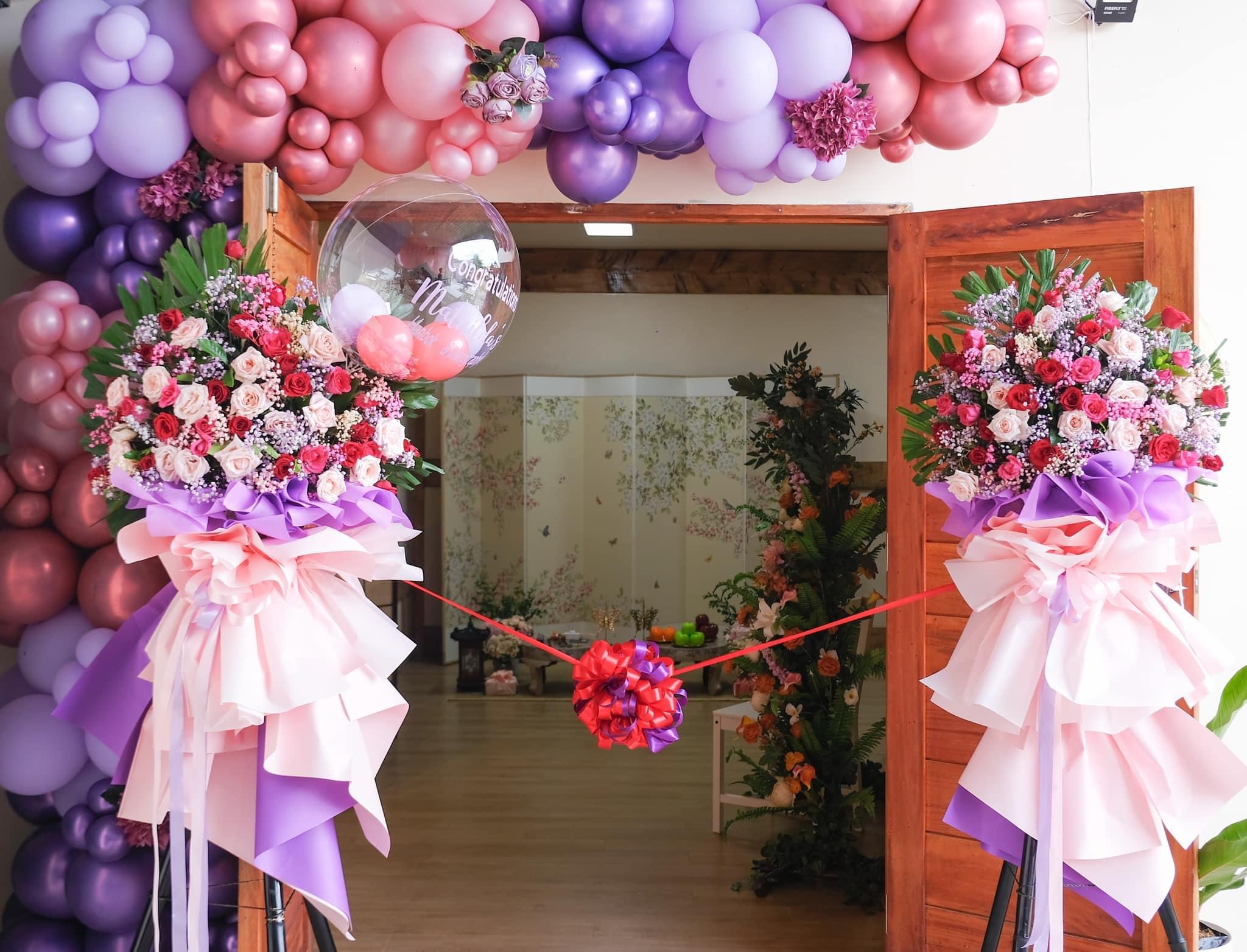
Ma. Elizabeth Valdez and her husband opened Mathilda’s Hanbok and Photography, their Hanbok rental shop and Korean-themed photo studio in Santa Rosa City, Laguna, Philippines, on February 26, 2023. (Ma. Elizabeth Valdez)
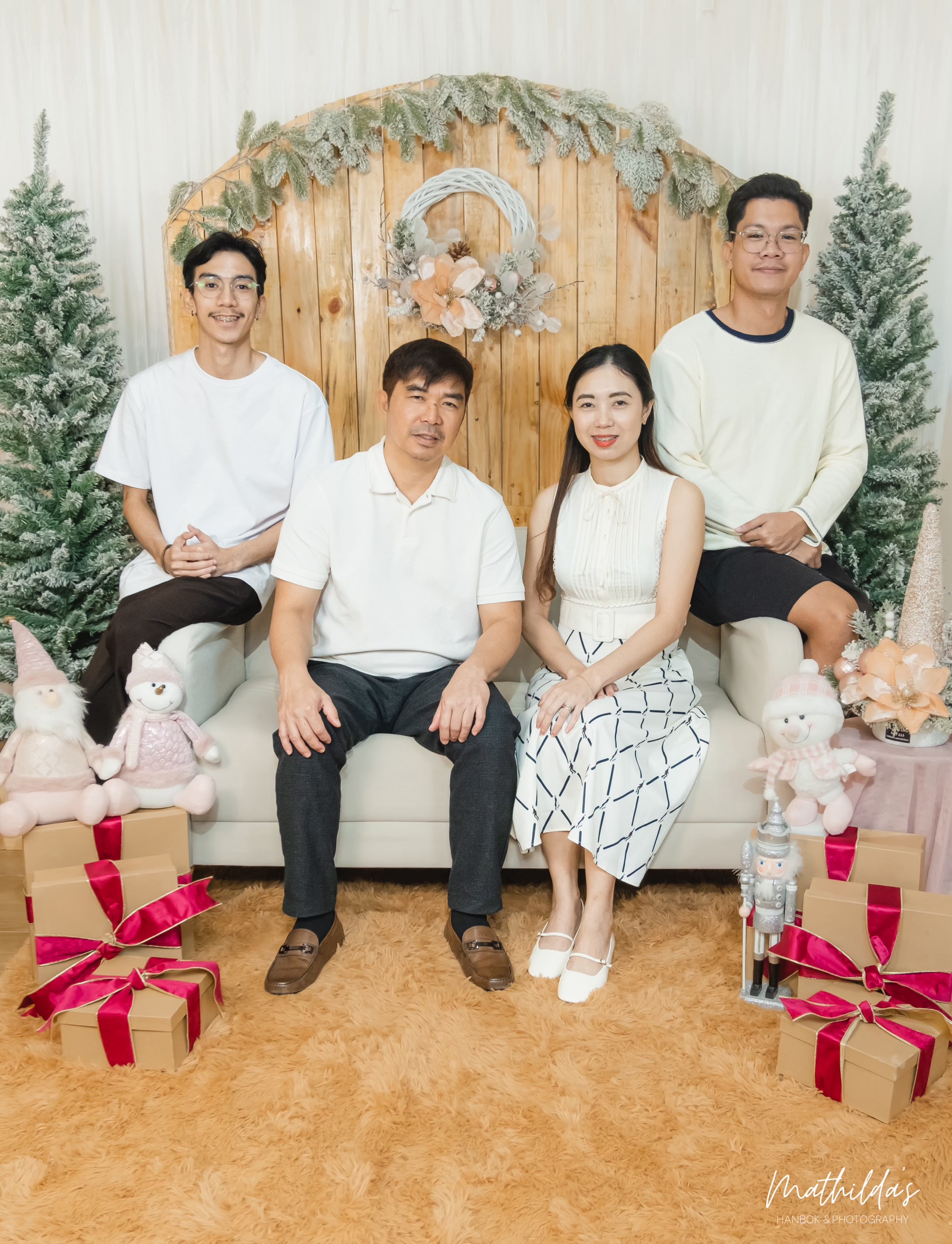
Korean culture enthusiast Ma. Elizabeth Valdez and her husband pose for a photo with their two photographers at their photo studio in the Philippines on December 16, 2023. (Ma. Elizabeth Valdez)
“The concept of offering photoshoots featuring Korean traditions such as baek-il and doljanchi was the idea of me and my Korean friend, Miss Lee,” Valdez shared. “Miss Lee, who hails from Seoul, is a good friend of our family and helps us in sourcing our supply of Korean Hanbok and the right props from Korea to make the perfect traditional Korean set-ups,” she said. They source most of their Hanbok, decor, and props directly from Seoul, Korea, while the others, especially the woodwork, are manufactured in the Philippines.
Valdez said they follow Korean customs when organizing Korean-themed photoshoots. For example, in baek-il, the ceremonial table is set with certain items, like rice, salt, rice cakes, and fruits. Then, the baby is dressed in Hanbok (traditional Korean clothes), paired with a traditional hat called jobawi (for baby girls) and bokgeon (for baby boys). “This is when the infant wears their first Hanbok,” noted Valdez. Describing baek-il, she said, “Koreans believe that if a child reaches the 100-day milestone, they will be blessed with a fulfilling and prosperous life.”
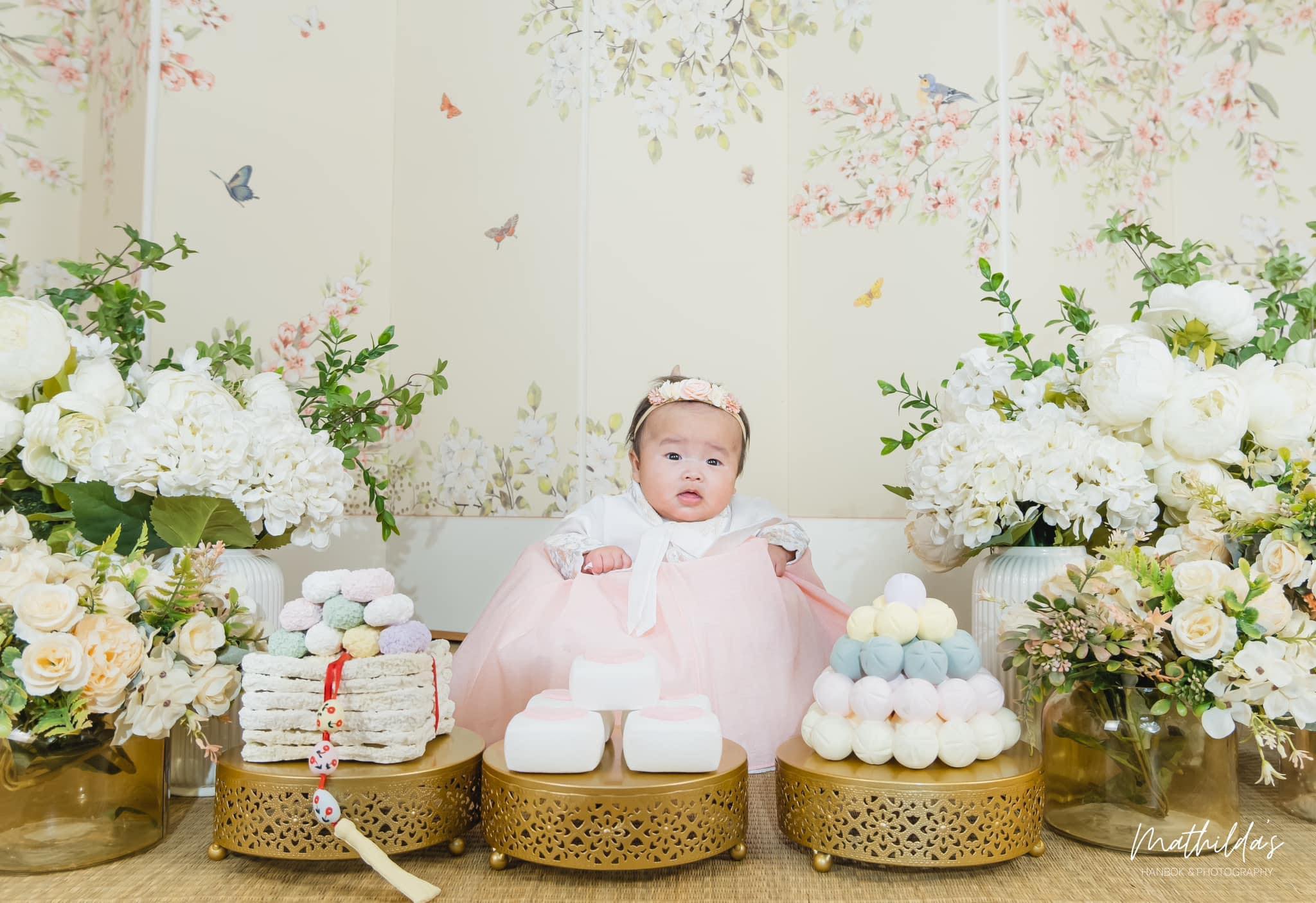
A baby celebrates her baek-il (100th day) photoshoot at Ma. Elizabeth Valdez and her husband’s Korean-themed photo studio in the Philippines on August 25, 2023. (Ma. Elizabeth Valdez)
Meanwhile, doljabi, which is performed during doljanchi or a baby’s first birthday, is a Korean tradition in which the baby is placed in front of an assortment of objects, such as a thread, a book, and old gold coins, and is encouraged to grab one or two items from the set of objects. “Each choice symbolizes a certain future for the baby in relation to their career or lifestyle,” said Valdez. For example, if the baby picks the thread, it suggests they will have a long and healthy life.
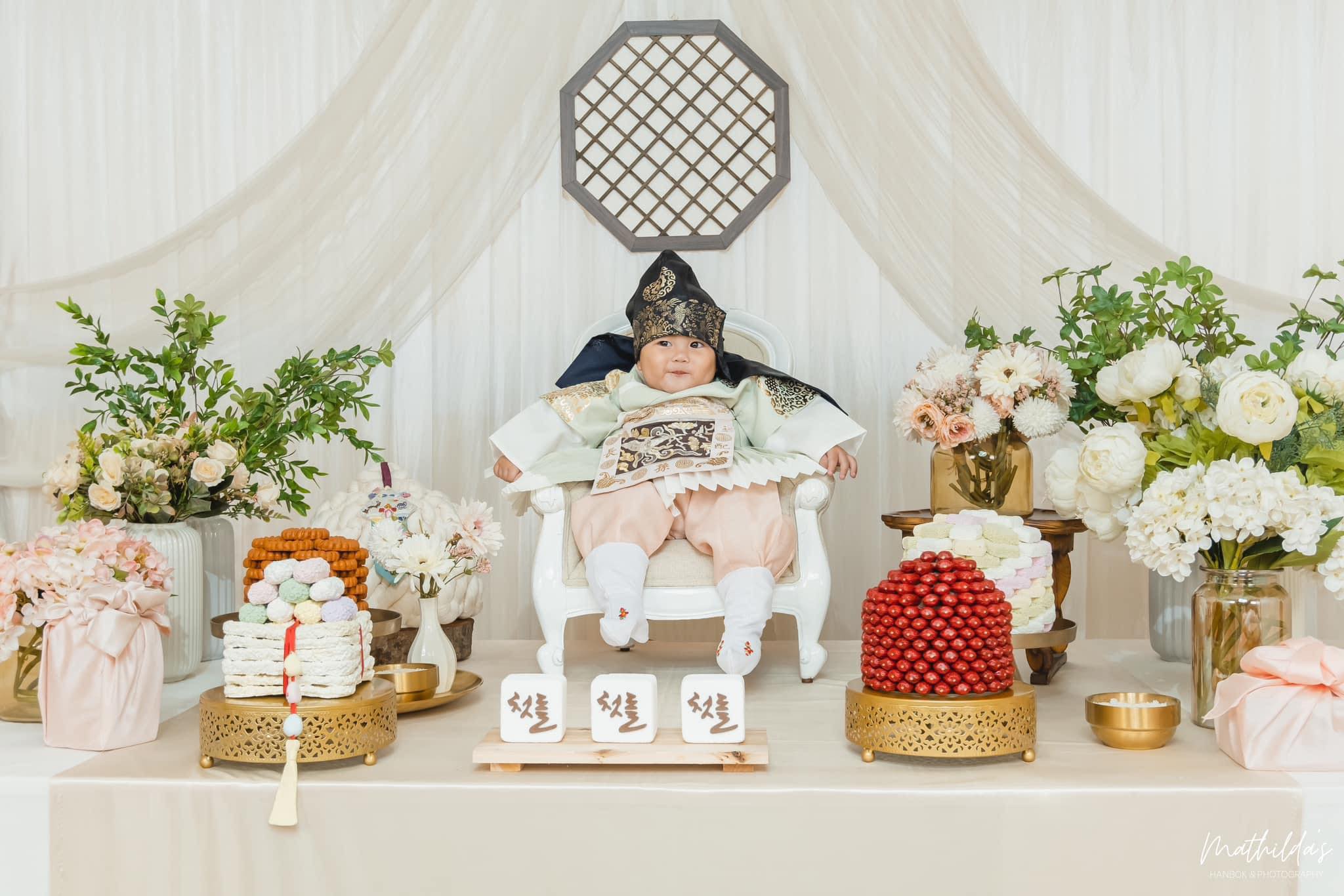
A baby sits on his dolsang (first birthday table) for his doljanchi (first birthday) photoshoot at Korean-themed photo studio Mathilda’s Hanbok and Photography in the Philippines on September 25, 2023. (Ma. Elizabeth Valdez)
When asked what she thought about the popularity of Korean culture in the Philippines, Valdez replied, “I think Korean people and their culture play a big part in a lot of Filipinos’ lives, from Korean dramas to samgyeopsal (grilled pork belly) and K-pop to wearing traditional Korean costumes.”
Through their Hanbok rental and photo studio, Valdez witnesses first-hand the growing interest of Filipinos in Korean culture. While most of their photo studio clients are mixed Filipino-Korean couples with a Filipina wife and a Korean husband, she said that their pure Filipino clients are also increasing in number. “Many Filipinos have begun to enjoy the experience of photoshoots while wearing Hanbok in a traditional Korean-inspired theme, especially for their babies’ baek-il. Some of them even travel for more than an hour to have a traditional Korean photoshoot,” Valdez said, noting that most of their photo session clients are from Metro Manila, while others are from nearby provinces.
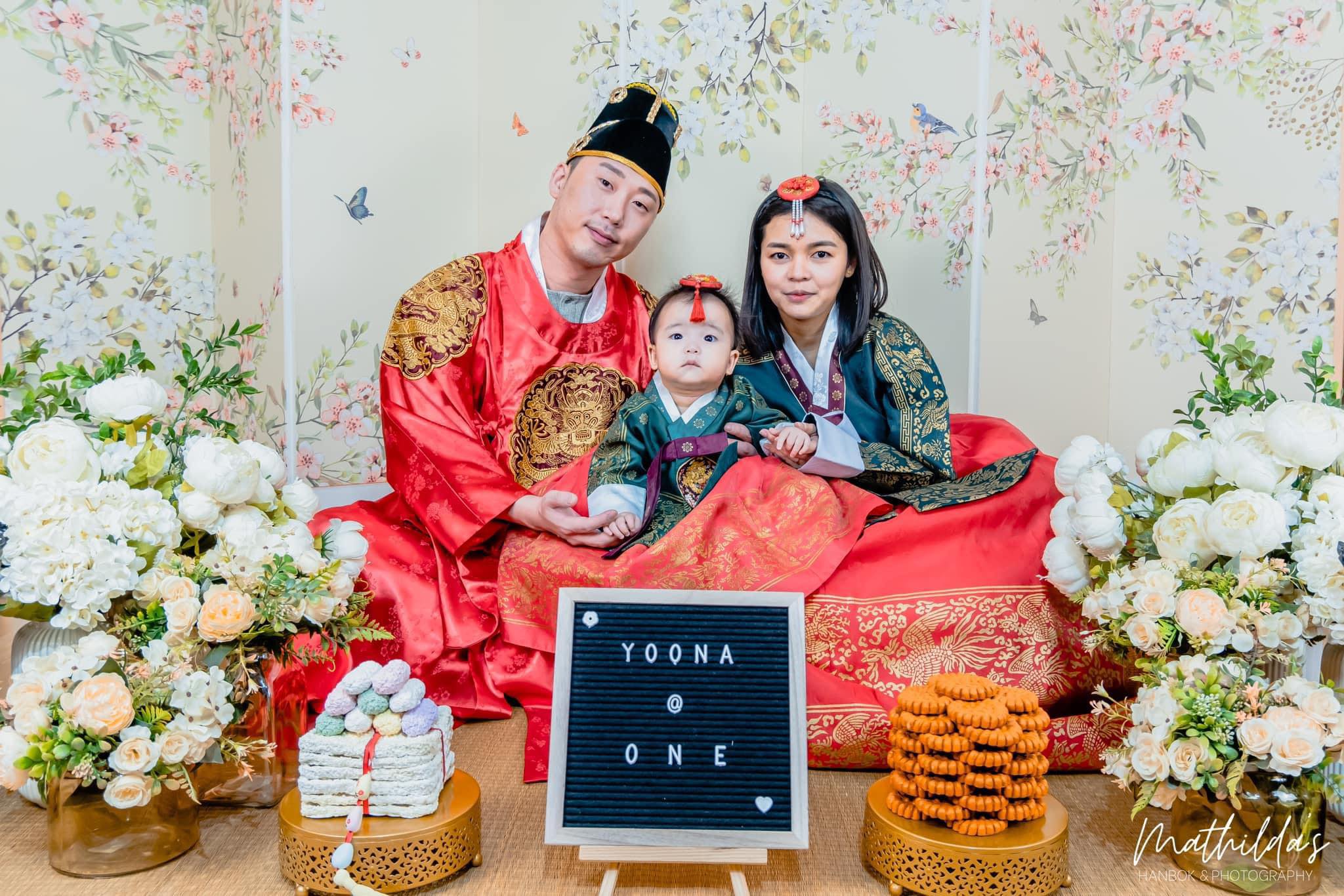
A family celebrates their daughter’s doljanchi (first birthday) through a photo session at Mathilda’s Hanbok and Photography in the Philippines on November 20, 2023. (Ma. Elizabeth Valdez)
Valdez has also seen the rising popularity of Hanbok among Filipinos. According to her, they have many Filipino customers renting their Hanbok, and they ship Hanbok and table setups to various locations across the Philippines. She said that for babies, kids, moms, and dads, it is a great experience to wear authentic Korean Hanbok and have their photos taken, and also share these photos on their social media.
How about this article?
- Like4
- Support1
- Amazing6
- Sad2
- Curious0
- Insightful2


